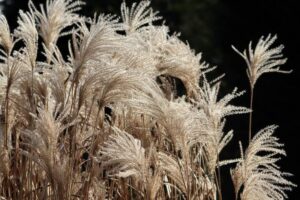Medical herbs recipe as tea
Introduction
Herbal teas have been used as natural remedy over hundreds of years. Therefore scientists were interested and begun to investigate evidences in order to find the medical aspect of herbal teas. They found out that tea and herbal teas have effective medical benefits, moreover specific herbs target towards specific diseases.
other articles you may be interested in :
What is Herbal Tea?
Herbal teas are also called tisanes, are beverages which are made by pouring hot water over different dried or fresh fruits, flower, plants, roots or different herbs. Depending on what disease you are targeting in your body, you can choose your herbal tea.
Hence herbal teas are loaded with antioxidants and are a kind of nutrition beverage which serve many purposes including reducing anxiety, sleeplessness, blood pressure, weight and inflammation etc… For instance Ginseng roots have plenty of health benefits, such as improving mood and behavior, balance hormones, against fatigue and controls high blood pressure.
Difference between Tea and Herbal beverage
It may be interesting to know that despite its name, herbal tea is not actually a tea but the cured or fresh leaves of a small tree named Camellia sinensis are called tea. On the other hand herbal tea is made of spices, fruits, flowers or different herbs. But because calling herbal beverages as herbal tea is common among everyone we also mention it as tea.
Another difference between them is tea is generally categorized into six types which are white, green, dark, black, yellow and oolong tea while herbal tea types are numerous.
Recipes for herbal teas
As herbal teas are healthy, tasty and have various types to fit everyone’s taste, they are a good option to be in everyday diet in order to stay healthy. There is a main formula for making herbal tea which is to pour boiling water over selected herbal tea and let it brew for 30 to 45 minutes.
Here are some herbal tea recipes, by keeping in mind that if a herbal tea has a bitter taste you can add honey to it.
Recipe for sore throat and flu
Most common issue everyone (at least once) dealt with is to catch a cold. One of the most effective natural solutions for sore throat is using an appropriate herbal tea. I recommend you to drink it while it is warm or room temperature because when you are sick raising your body temperature helps your immune system.
Besides the traditional lemon tea and honey, blueberry herbal tea, Licorice root tea, bellow are other herbal tea sorts helping you during your sickness.
Peppermint tea sooths your throat and has a relaxing effect so you can have a rest. Depending on what kind of peppermint leaves you use 3 tablespoons is enough for a cup of peppermint tea.
Another tea for sore throat is Chamomile tea. Chamomile has been used as a herbal medicine for centuries. It boosts your immune system, is good for skin and bone density, reduces cold symptoms and slows down aging process.
The classic Ginger tea, beside its effectiveness in treating process of cardiovascular disease, cancer, dementia, and more, is beneficial for flu.
Lemongrass tea give a refreshing feeling and good for cold. It has a citrus like taste and is usually served after dinner because by releasing more urine it relieves from bloating.
Recipe for headaches and digestive issues
Ginger tea, Chamomile tea and peppermint tea which all have been mentioned above are good for headaches and have also a calming effect and are good for digestion.
Moreover lavender tea, turmeric tea, coriander seeds and clove tea are helpful for headaches.
For digestion also these teas are recommended: black tea, green tea, oolong tea and Licorice root herbal tea.
Recipe for insomnia
As nowadays many people suffer from sleeplessness best option to deal with, is by using herbal teas. Generally herbal teas are not one dimensional effective, for example Lemongrass tea, lavender tea, chamomile tea and peppermint tea, mentioned above all have a calming effect so helps your body to fight when you have got a cold and are also good for insomnia.
Valerian tea, passionflower tea, borage and magnolia herbal tea also help you to fall asleep more easily.
Conclusion
All in all there are many herbal teas which can target your specific purpose and are mainly approved by scientific researches. But using them without awareness or medical advice they can be harmful for your body.
Although their side effect are very few but some could be allergic towards specific nutrition and need to be aware of using herbal teas. So if you have checked your allergy status, for some diseases herbal teas could be a good alternative or addition to pharmaceutical treatments.


